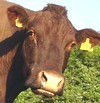Bovine Tuberculosis: FWi special report

Bovine tuberculosis is arguably the most challenging issue facing the livestock sector in Great Britain today. It is endemic in the south west and large parts of central England and south-west Wales as well as occurring sporadically elsewhere.
It also has a high cost: In 2006 the Treasury paid out about £90m in testing and compensation, research and vaccine development costs and more than 23,000 cattle were slaughtered for the purposes of disease control.
Yet the disease continues to spread: according to the annual report of the Chief Veterinary Officer 47% of cattle herds in England now fall in a one- or two-year testing parish.
Over the past two years DEFRA has introduced a series of new measures intended to tackle the disease. But initiatives such as compulsory pre-movement testing for all cattle over 42 days of age, the introduction of standardised compensation values that were intended to help speed the removal of infected animals from farms and a zero tolerance policy on overdue herd tests have done little to halt the disease’s spread.
During this time pressure has steadily mounted on DEFRA to take action against the main wildlife vector: The badger. Numerous research projects performed here in the UK and in other countries – mainly the Republic of Ireland, Spain, New Zealand and the United States – have demonstrated that if a high incidence of bovine TB is to be addressed it can not be done without tackling the primary wildlife reservoir.
Consequently, DEFRA has come under increasing pressure to empower farmers and landowners in troubled areas to permit the legal removal of badgers.
On Monday, 18 June 2007 DEFRA published the Independent Scientific Group on cattle tuberculosis‘ final report of the on the Randomised Badger Culling Trial, or “Krebs trial” as was otherwise known. The report seeks to consider what role the badger plays in spreading the disease to cattle and what, if any, contribution a cull could make to tackling the prevalence of disease.
The latest report on bovine TB is a review of the evidence from the Randomised Badger Culling Trial by the government’s chief scientific adviser Sir David King.
His report advises ministers to proceed with a cull of badgers in heavily affected areas. Although this report is viewed by many as paving the way for a government-led cull there remain many hurdles, mainly political, to be overcome beforehand.
LATEST STORY (updated 23 October 2007)
Badger culling report is welcomed by farmers, but rejected by wildlife groups
OTHER RELATED STORIES
Chief scientist backs badger cull
Northern Ireland to perform badger survey
TB test results raise questions
Spread of TB continues as cattle killed rises 21%
TB report comments ‘beyond remit’ – Lord Rooker
Tories push DEFRA for more PCR research
DEFRA moves closer to a restricted badger cull
TB: Calm before the storm – a special investigation
Badger cull must be over large are to be effective
USEFUL LINKS
The Independent Scientific Group on cattle tuberculosis
Central Science Laboratory’s research unit at Woodchester Park
The Institute of Animal Health’s TB page
